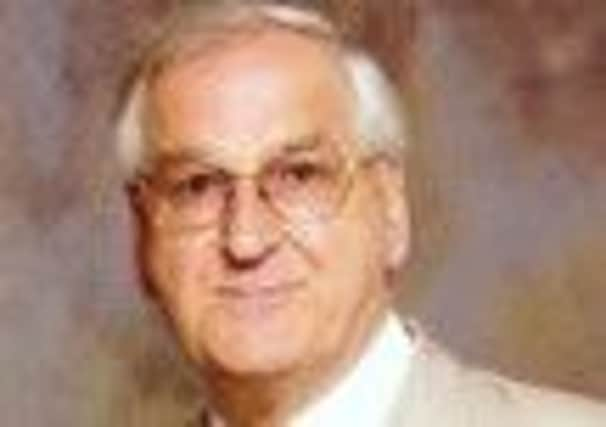Obituary: John Skene Middleton, agriculturalist.


John Middleton died on 15 January after a mercifully brief final illness. His memorial service at Leamington Hastings was attended by some 500 people – a fitting tribute to his life and character. At his request, a second memorial service for friends north of the Border has been arranged for noon on Sunday, 1 June in the Loretto School Chapel, to which all friends are invited.
John was born in Edinburgh, where his father was an eminent dental surgeon. He was the middle of three brothers and the family spent much of the war at Traquair near Peebles, while Dr Middleton was a prisoner in Changi Prison in Singapore.
Advertisement
Hide AdAdvertisement
Hide AdThere he honed his skills in facial repairs, recording dreadful treatment of prisoners secretly when discovery would have meant a certain death sentence.
Educated at Ardvreck, Crieff and then Loretto School Musselburgh, John went on to a distinguished academic career in agriculture at the Universities of Edinburgh and Newcastle.
He was awarded the Wallace prize for being the outstanding graduate of his year. The letters after his name illustrated his achievements – BSc (Agric); NDA; ND AgricE (Hons); T.Eng (CEI); MI Agric.E. Yet, while studying, he found time to take up rowing with equal success, becoming reserve oarsman for the Scottish team at the 1958 Empire Games, held in Cardiff.
He became factor or estate manager for the Earl of Southesk, Sir John Clark, at Penicuik, and at Lindores in Fife, Lytham St Annes for Guardian Royal Exchange Estates and for the Royce family, near Chequers. While at Penicuik, he married Susan Block, who would be his wife of 48 years, and together raised Kirsty, Ian and Lindsay.
A change of career followed when he joined an international agricultural and animal feedstuffs group as marketing manager and later management consultant.
In 1988 his career took a whole new direction and he became chief executive of Grand National Archery Society until his retirement in 2000. Such was the quality of his leadership and guidance that the team won record numbers of medals at successive Olympics.
For his work at the Archers and for being the first member of the British Olympic Association to fully integrate disabled archers within the main body, John was made a Freeman of the City of London by the Worshipful Company of Fletchers.
History does not record him exercising his new-found right to heard sheep or cattle across London Bridge but his mischievous sense of humour certainly made him think about doing so!
Advertisement
Hide AdAdvertisement
Hide AdDespite living in England for many years, he was always a Scot. His love of the hills and mountains drew him north every year to visit friends and climb the Cheviots, Lammermuirs, Moorfoots, Sidlaws, Ochils, Grampians and his real challenge – the Cairngorms.
He did not forget the Western Isles and Orkney, cruising on the Hebridean Princess and also visiting an old friend from Ardvreck in Orkney.
His other passion was for model railways, which stemmed from the magnificent family track laid out in the attic in Manor Place. He built many of his own models and wrote erudite papers for the club of which he was a member as well as for national organisations and publications.
Perhaps his greatest personal achievement is to be found in the Parish Kirk, Traquair. He never forgot his time spent there during the war and the Commonwealth troops stationed in the village. He felt that their contribution had been both overlooked and forgotten and he resolved to right this omission. Sunday, 23 May, 1999 saw the unveiling of a plaque which he had both commissioned and paid for. Part of the inscription reads: “They will return no more but their glory remains forever.”
Cajoled into attending were the Lord Lieutenant of Tweeddale, the GOC Scottish Command, the New Zealand Defence Staff, the Australian High Commission, the Canadian High Commission, the local MP, MSP and regional councillors. John would not take “no” for an answer – all had to be present!
John went quietly about his good works, serving as a parish councillor at his local church. But, his main achievement was that all farm tractors have installed in them a safety device, invented and patented by John. When asked why he had not made a fortune from this patent he said: “No, it was a safety device. I didn’t want to make money from this. So, I made it an open patent.”
Those words sum up his character and attitude to life. John never forgot a friend, he was kind, generous and considerate almost to a fault. Perhaps he was from the “old school” in more ways than one, but he was certainly none the worse for it. He is sorely missed as a true gentleman and friend by all who knew him.
CONTRIBUTED